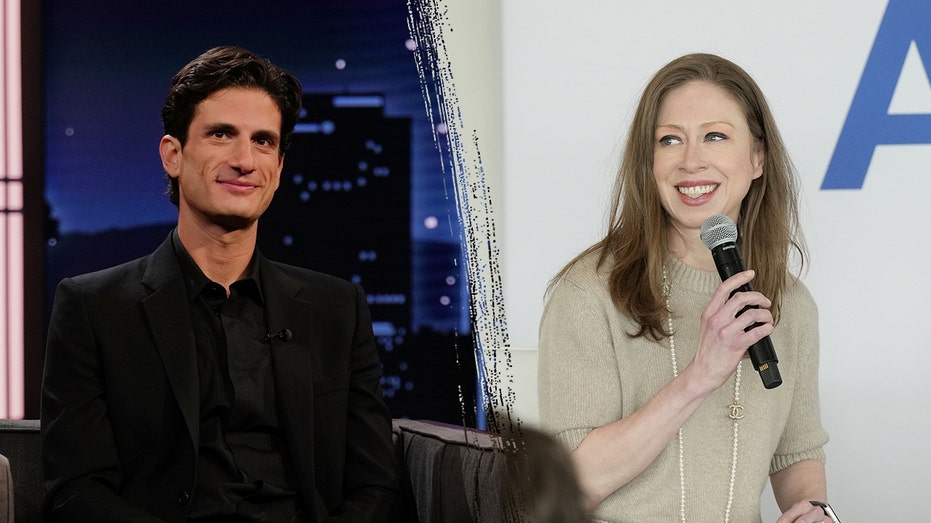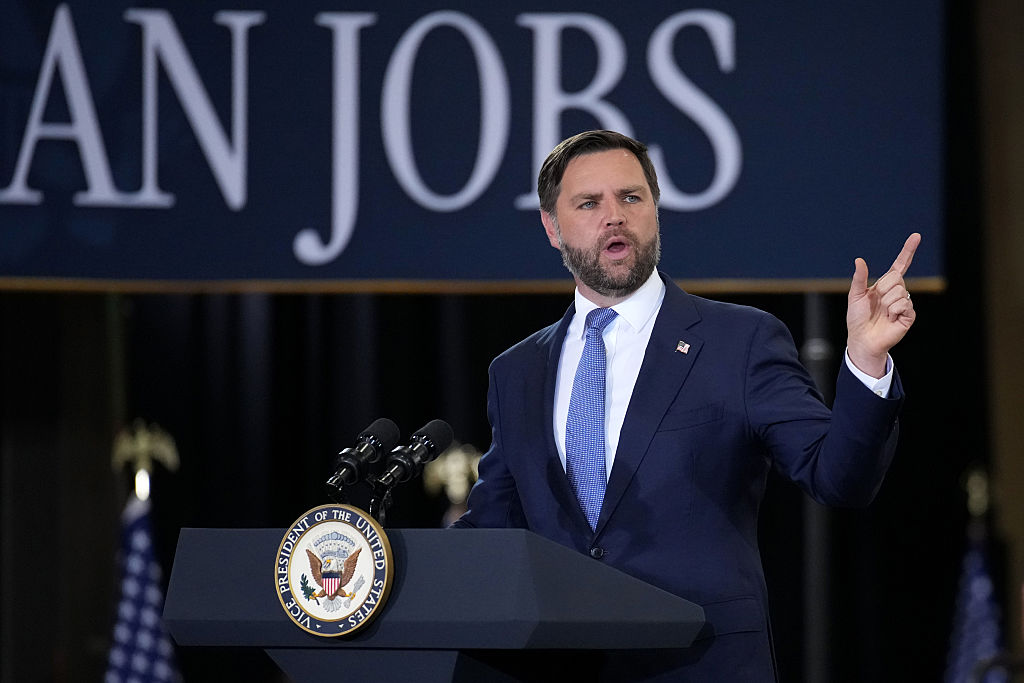It’s hard to believe, but of all the celebrities who lost their Los Angeles homes in January’s fires, the one having the biggest policy impact is former reality TV star Spencer Pratt.
Fans of the mid-2000s MTV show The Hills will remember Pratt as a cartoonishly manipulative boyfriend, cruising around the Hollywood Hills and causing drama. A new, decidedly wonkier season is effectively now underway in the ashes of those same moneyed environs, with Pratt in a starring role in the debate over how to rebuild Los Angeles’ burned neighborhoods. And Pratt is vehemently against denser housing.
The instinct for boiled-down conflict that helped make The Hills a hit is now turning LA’s housing wars into a similar spectacle thanks to his involvement. Pratt’s monologues on TikTok and Instagram, delivered against a backdrop of smoldering streets to his 2 million followers, inveigh against Gov. Gavin Newsom, Los Angeles Mayor Karen Bass and seemingly any state lawmaker who touches the notion of building more housing in fire-scarred areas.
In addition to Pratt, other celebrities whose homes burned down, like Mel Gibson and Ricki Lake, are speaking out about the fires and their aftermath. But Pratt’s advocacy is finding the most political resonance — and not just among Republicans like Sens. Rick Scott and Ron Johnson, who launched an investigation into the fire and are holding a press conference Wednesday alongside Pratt. Two days after Pratt’s broadside against a law allowing fourplexes on land zoned for single-family homes, Newsom waived it for fire-prone areas.
The movement to build more housing has gained momentum in recent years amid crisis-levels of housing unaffordability across the country. That’s particularly true in California, where Ezra Klein and Derek Thompson’s Abundance thesis has juiced the ongoing pro-housing zeitgeist. But now YIMBYs may have met their match in one of the greatest villains of millennials’ generation.
It’s important to note that Los Angeles has long been a weak point in the effort to increase housing density. And doing anything in the affluent Palisades was always going to be particularly difficult. “If Los Angeles is the NIMBY capital of California, then the Pacific Palisades is the NIMBY capital of Los Angeles,” said Jonathan Zasloff, a property, land use and environmental law professor at UCLA whose house in the Palisades also burned down.
But housing advocates credit Pratt with being a particularly effective tip of the spear.
“Instead of a [recovery] plan to make the city affordable for its residents, we have Spencer Pratt influencing the mayor of LA to kill housing,” said Matthew Lewis, spokesperson for the advocacy group California YIMBY.
Once a tabloid fixture, Pratt largely faded from prominence over the years; he appeared in Celebrity Big Brother UK multiple times and later built a sizeable following on SnapChat, where he documented his family and life with wife Heidi Montag, whom he first began dating on The Hills. The fires have thrust him back into the spotlight.
As in the show that made him famous, Pratt is a bit of a heel. He manufactures scandal, like a photo of Newsom “trespassing” on a burned property (the governor was on a tour with the homeowner, Newsom’s office said). But he also displays a predilection for policy, reading bill text aloud and posting utility reports on wildfire prevention.
It’s also not unreasonable to be concerned that denser housing in an area could make evacuation more difficult when the next fire inevitably appears. But too often, Pratt, whose representative didn’t provide a comment for this story, mixes fact and fiction.
I started watching Pratt’s social media talk-a-thons in June, after an episode involving state Sen. Ben Allen, a Democrat representing Malibu, who introduced a bill to create a local agency that could buy burned properties, rebuild them and sell them back to their owners. The idea wasn’t new; redevelopment agencies had long had the ability to use property tax revenue to improve blighted areas before California lawmakers ended the practice in 2011 over concerns that it was sapping funding from schools and other services.
Allen had based the bill on a recommendation from a “Blue-Ribbon Commission on Climate Action and Fire-Safe Recovery” convened by LA County Supervisor Lindsey Horvath. They were well aware of the history and had also taken pains to specify that the rebuilding authority wouldn’t have the power to use eminent domain in residential areas and seize people’s homes unilaterally.
“I figured there was a risk that other land use nerds or folks in the Legislature might say, ‘Oh, this is starting to look an awful lot like a redevelopment agency,’” said Julia Stein, deputy director of UCLA’s Emmett Institute on Climate Change and the Environment, who worked on the report.
Before that could happen, Pratt intervened. Three weeks after Allen introduced the bill, Pratt posted on TikTok that he had used the AI tool Grok 4 to determine that it “strips local control, creates a county-level authority that overrides city and community decisions on rebuilding after the wildfires, centralizing power away from locals.”
Allen pulled the bill the next day, citing community opposition.
“I don’t think he was doing it in a malicious way. I think he’s someone who has been suffering, along with so many others in the community, and is really trying to fight for his community,” Allen told me. “I think he was just amplifying rumors that were going around, but because of his prominence and the stridency of his messaging, he made things more complicated in terms of getting the word out.”
Stein, who watched The Hills when it was on the air, is more exasperated. “We widely, at that time, regarded Spencer Pratt as the garbage boyfriend of the world,” Stein said. “Little did I know that he would also be the garbage boyfriend of land use.”
Now Pratt has turned his attention to pro-housing advocates’ biggest legislative priority in California. SB 79, by state Sen. Scott Wiener, would boost housing density statewide by allowing apartment buildings of up to nine stories next to train stations and major transit stops. Currently, most cities zone the land around transit stops for single-family houses — widely considered a major impediment to building more affordable housing at a time when rent continues to skyrocket.
Pratt posted against the bill on Instagram on Aug. 12, with a video of gridlocked traffic trying to escape this year’s fires and a caption: “Call Newsom and tell him Palisades can’t have more density. Stop SB 79.”
The Los Angeles City Council voted 8-5 the following week to pass a resolution against it, with Bass on board.
The only problem: The bill wouldn’t apply to the Palisades, which lacks any public transit stop valuable enough to upzone around.
“He’s spreading a bald-faced lie, saying that SB 79 applies in the Palisades,” Wiener, a San Francisco Democrat, told me. “It does not, and that is shameful.”
It was inevitable that the fires, which ended a week after President Donald Trump’s inauguration, would be politicized. After the state’s coastal protection agency was targeted by Trump, Elon Musk and Richard Grenell, Newsom issued a series of executive orders directing it not to impede LA’s recovery.
Those didn’t have real practical effect, though. And waiving the zoning law that permitted more fourplexes also didn’t matter much since only about seven properties in the Palisades had applied to use it to rebuild more densely, according to staff for LA City Councilmember Traci Park, who represents the area and asked Newsom to suspend the law.
Losing legislation to create a new agency to rebuild burned properties was a bigger deal. “That mechanism, I think, would have been hugely helpful for folks in Altadena,” Stein said.
And SB 79 is as big a deal as it gets in California’s painstakingly incremental housing wars. The bill has gotten further than either of Wiener’s previous two attempts and this week secured support from an influential construction union, a key constituency. The bill is expected to come up for a final legislative vote this week, and if it’s passed, would head to Newsom’s desk.
Newsom has frequently embraced the YIMBY mindset; he leaned on lawmakers in June to pass language watering down the California Environmental Quality Act for housing and other construction.
But it’s an open question whether Newsom, who has until Oct. 12 to sign this year’s bills into law, will endorse the legislation. He may be particularly reluctant to anger Los Angeles Democrats ahead of his Nov. 4 special election to gerrymander the state’s congressional maps in response to the Trump-led effort to gain more GOP seats in Texas.
“I can’t imagine Newsom signing this thing right before the special election,” Zasloff said. “Why split your party before this very, very crucial election?”
Newsom spokesperson Tara Gallegos said the governor doesn’t comment on pending legislation but that Pratt wasn’t influencing him. “Our office doesn’t communicate with Spencer Pratt,” she said in a text message. “I don’t even think the governor knows who he is.”
But many Angelenos do. Ten years into the Trump era, it’s not entirely shocking that a one-time reality TV star with a knack for social media can make an impact on American politics. But it’s still remarkable that it’s the one-and-only Spencer Pratt who will help determine whether the YIMBY wave gains strength or recedes in California.
.png)















 English (US)
English (US)